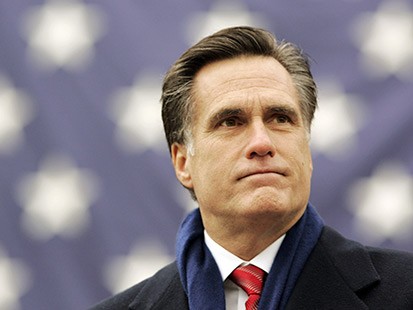With Romney’s convincing win in Florida, the murmuring has once again started. Pundits and casual political observers across the country are starting to whisper that Mitt Romney is the inevitable presidential nominee for the Republican Party. It’s only a whisper because of what happened just a few Thursdays ago. Just a few days before the South Carolina primary, Romney’s miraculous eight-vote victory in the Iowa Caucus was overturned to Rick Santorum, Newt Gingrich sky-rocketed in the polls after telling off the ‘liberal media’ during a debate, and Rick Perry dropped out of the race. These events suddenly silenced the growing chatter that Romney was the guaranteed nominee. Even with the defeat of former Speaker Newt Gingrich in South Carolina, Romney supporters still insisted he was the inevitable nominee, and they might be right.
The Romney camp regrouped after South Carolina and came out with a new strategy for the electoral goldmine that is Florida. Mitt went on the attack, both in two very solid debate performances and in an almost three-million-dollar advertising splurge in all of Florida’s ten major media markets. Romney showed some promise in the way that he campaigned in Florida by going on the attack and briefly drawing the focus of his campaign away from Barack Obama and towards Newt Gingrich.
Demographically, Florida is five different states. Up north there is the deep red panhandle, where birthers run rampant. Then there is the space coast, home to an enormous number of NASA-related jobs; needless to say candidates like Newt Gingrich do their fair share of pandering here. After that comes the legendary I-4 corridor, and the enormous market stretching from Orlando to Tampa where the electorate is about as diverse as it gets in American politics. Along the Southern coasts of the state lies the most liberal Florida crowd, mostly Northeast transplants enjoying their retirements. Lastly, the greater Miami area is made up of Hispanic immigrants from countries that have no ironclad political parties themselves, making the Miami population swing voters by nature.
Romney arguably has the harshest immigration policy of any of the remaining candidates, advocating for policies such as self-deportation. He was still able to win counties in and around Miami, partially due to Speaker Gingrich’s comment that Spanish is “The language of the ghetto.” Romney crushed Gingrich in the I-4 corridor, a sign that Mitt is a stronger general-election candidate than any of the others in the current GOP field, as the I-4 is as general as it gets. In the panhandle Mitt lost just about every county, showing that his Tea Party appeal still needs work.
Something that may add to Mitt Romney’s Tea Party appeal is his unplanned strategy this week. Shortly after making comments about how he wasn’t concerned with the “very poor” because they have a safety net, Mitt Romney stood next to Donald Trump on a stage in Las Vegas, accepting the Boss’s endorsement. Standing on stage next to the face of the birther movement may hurt Romney in the general election, but this kind of stunt is great for rallying Tea Party support. If Mitt wants to be the serious challenger to President Obama that he claims to be, he’ll need to avoid gaffes like this in the future. Nevertheless, Romney’s organization and retail politics have been sound so far, and if he keeps it up, he’ll find himself asking people in November if they are better off than they were four years ago.

